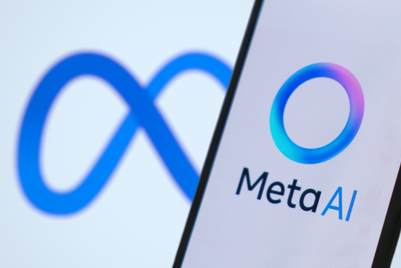Singapore has introduced a new code of practice for social media platforms to ensure online safety, in line with requirements by the Infocomm Media Development Authority (IMDA).
Social media platforms listed in the code are Facebook, Hardwarezone, Twitter, TikTok, Instagram, and YouTube. Singapore is one of the first jurisdictions globally to introduce laws for platform preventive measures on online safety.
The code requires platforms to promptly inform users of actions taken on their reports of online harm, addressing previous concerns of users being left in the dark after submitting reports.
The law allows authorities to direct platforms to remove harmful content, and failure to comply may result in fines of up to $1 million or having their services blocked in Singapore.
Platforms must also establish community guidelines, enforce content moderation, and create separate guidelines for younger users.
Social media services must minimise users' exposure to harmful content, offer tools to manage their safety, and provide local safety information for users discussing high-risk terms related to self-harm or suicide.
Each platform must submit annual online safety reports to the IMDA, to be published online, detailing the steps taken to mitigate harmful content exposure and actions on user reports.
IMDA will rely on the platforms' safety reports and public feedback to assess compliance and take action when needed.
Minister for communications and information Josephine Teo emphasised the need for social media platforms to do more to protect young users from harmful content and encourage users to report such content immediately.
“Any social media user can attest to having seen sexually explicit, violent, or even self-harm content online,” Teo wrote on Instagram.
“But laws alone cannot solve the problem. When you come across harmful content, do not ignore or further circulate it,” she added. “Let’s all do our part by reporting it to the social media platform immediately and encouraging others to do the same.”
Youth media platform TotallyAwesome welcomes the additional protection specifically for young audiences.
Marcus Herrmann, the chief safety officer at TotallyAwesome, tells Campaign the platform is pleased to see that the code applies to under 18s, which is much better than in other countries.
"In theory, [this] reduces harmful content and advertising that below 18s are exposed to. We will need to see in practice if and how platforms can actually implement this," says Hermann.
"We recommend clarity on enforceability of this act and the implementation of fines for violations. We also would prefer a general application instead of limiting it to designated list Most important for Singapore is to implement now, [is] strict personal data protection for under-18s."
TotallyAwesome is also looking forward to enhanced privacy protection with the revision of the PDPA to include specific personal data protection of under-18s.
"That would help Singapore to catch up with US, EU and even some other SEA countries that already have young audience data protection in place," says Hermann.
Dan Kalinski, managing director for APAC at NP Digital, points out n the landscape of digital regulation, three crucial areas of concern emerge: user safety, data privacy, and content/publisher rights.
These issues have prompted three distinct approaches to regulation which emerged over the past several years, he notes.
"The approach spearheaded by the EU has been focused primarily on protecting the consumer, evident in the so-called “Brussels effect” where a lot of innovative legislation is gradually adopted globally, with notable examples such as the GDPR," says Kalinski.
"The US approach has been traditionally focused on protecting the market with a view that regulation stifles innovation. There’s a constant tension at the heart of the US policy debate between two conflicting needs – innovation on the one hand, and consumer protection on the other."
Kalinski continues: "The US’ position has been gradually evolving and shifting towards that of the EU. However, in the age of geo-political competition, of which much is centred on technology, we can’t expect US legislators to be rushing in with new laws as this is likely to blunt the innovative edge, specifically in areas such as AI."
However, Kalinski notes China seems to be pursuing a different approach to regulation where state and society protection is paramount. He predicts APAC will see a mix of these three approaches.
"Most Southeast Asian countries are trying to straddle the balance between freedom of expression, access to innovation and consumer/state protection, and the IMDA’s code of practice and the Online Safety Act are trying to achieve just that," says Kalinski.
"It’s a welcome step in the evolution of our understanding of what free speech means in the age of social media and Singapore is definitely leading the way in this important debate."
While harmful ads have been notorious for heavily targeting younger audiences, Antoine Gross, general manager for SEA at Impact.com, points out it still transcends across all demographics and channels.
Hence, brands and creators bear crucial responsibility to create safe, authentic, and resonant content.
"Both must take a proactive stance and approach in ensuring that their content is ethical, inclusive, and respectful — particularly when targeting vulnerable audiences," Gross tells Campaign.
"By crafting genuine content that aligns with the interests and passions of the target audience, brands and creators can forge meaningful connections and resonate with consumers on a more personal level."
Campaign reached out to Meta and TikTok for their comments on the new code, but TikTok did not respond at the time of writing. Meta said it had no comment and pointed us to its existing work around
youth and
wellbeing.
.jpg&h=570&w=855&q=100&v=20250320&c=1)


.jpg&h=334&w=500&q=100&v=20250320&c=1)


.jpg&h=334&w=500&q=100&v=20250320&c=1)
.jpg&h=334&w=500&q=100&v=20250320&c=1)


.png&h=334&w=500&q=100&v=20250320&c=1)





.jpg&h=268&w=401&q=100&v=20250320&c=1)



